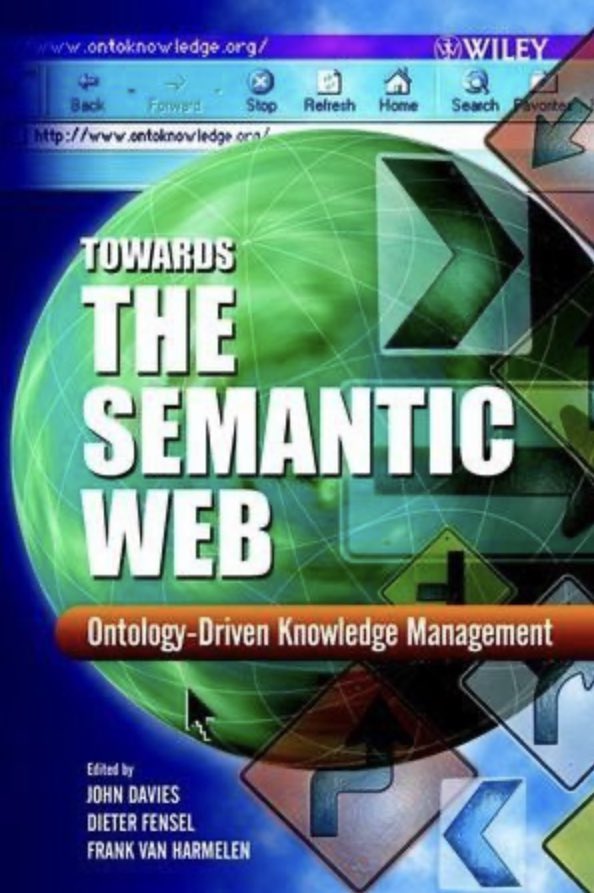RDF
This article is a stub. You can help the IndieWeb wiki by expanding it.
RDF is an abbreviation for Resource Description Format, an early-ish part of XML-related technology, that was pitched as the Semantic Web, used in Trackback and RSS 1.0 (but dropped by Pingback and RSS 2.0 respectively), later rebranded as Linked Data, experimentally published in the past, but not used by any indieweb use-cases in practice.
Microformats began in part as a reaction against the verbosity of RDF and extra technical layers. RDF developers eventually took some tips from Microformats in turn, and created RDFa and JSON-LD.
Example Uses
FOAF
FOAF (Friend of a Friend) is (was?) one of the more frequently used RDF vocabularies/formats, in many ways a reinvention of the vCard vocabulary (used in hCard microformats and h-card microformats2).
From this wiki (from IndieWeb community experience), FOAF was also:
- undiscussed at the original IndieWebCamp 2011
- briefly mentioned at HWC 2014-10-15 in Lisbon
- mentioned in the Indie Contacts session at IndieWebCamp 2014
- an example of the sidefile-antipattern
- indexed by the now defunct Google Social Graph API
- an example of past standards efforts
- noted as "dead" in the IndieWeb Summit 2019 State of the Suite (of Protocols) session
The general concept of a "friend of a friend" affording some trust (at least to leave comments) is used in the Vouch protocol.
Criticisms
General criticisms / threads (specific criticisms could be extracted from these)
Threads: https://twitter.com/YungTseTech/status/1125641970720755712
- "To be honest, I haven't yet seen a convincing case for the Semantic Web. Of course this could be because I'm some kind of unimaginative subliterate ... but ... (and I'm only putting this out here!) ... could it be that it doesn't solve a lot of problems people actually have?" @YungTseTech May 7, 2019
not web nor for web devs
Semantic Web is not really the web, and has poor developer experience:
- 2018-12-18 Not web: https://ruben.verborgh.org/blog/2018/12/28/designing-a-linked-data-developer-experience/
Ironically, Semantic Web enthusiasts have failed to focus on the Web
- Difficult to use and poor DX: From the AT Protocol FAQ: Why create Lexicon instead of using JSON-LD or RDF?
RDF is intended for extremely general cases in which the systems share very little infrastructure. It’s conceptually elegant but difficult to use, often adding a lot of syntax which devs don't understand. …
We looked very closely at using RDF but just didn't love the DX or the tooling it offered.
complexity without benefit
The additional conceptual and implementation complexity costs of learning/coding RDF do not provide equivalent (or any in practice? i.e. YAGNI) marginal benefit (certainly not to individual developers who have limited time/maintenance resources for their own websites):
- From: http://microformats.org/wiki/triples
The larger problem is that triples are more than just complicated, they are unnecessarily complicated.
- https://unwalled.garden/docs/why-not-rdf
… philosophy about RDF is YAGNI (You Ain’t Gonna Need It). We see RDF’s complexity as a turn-off to developers and something we should try to avoid if we can.
- Criticism, thread (includes some JSONLD criticism too, debunking of "simplicity" claims) https://twitter.com/pfrazee/status/1136719211735277574
- "Eh yeah but you're still encoding all that info somewhere, and it doesn't change the fact that RDF is actually a graph model with URL attributes that we're fighting to behave like a schema identifier" @pfrazee June 6, 2019
sunk cost investment
- Criticism: https://news.ycombinator.com/item?id=31042118
billions of dollars in 2008-2010 timeframe on implementing Semantic Web technologies
- Criticism: https://news.ycombinator.com/item?id=31046470
"These are so inaccurate that they are frequently misleading, and cannot be trusted." The Colonel later pulled me into his office and stated (rather comically): "You mean to tell me I've been paying people to draw cartoons for 3 years? We're not goddamned Disney here."
syllogisms not useful
- syllogisms critique http://www.shirky.com/writings/herecomeseverybody/semantic_syllogism.html (Internet Archive link)
provokes emotional ranting
For some reason, RDF and Semantic Web in general provoke strong negative emotional reactions from at least some developers:
- 2018-08-07: https://pleroma.site/notice/2962160
- "these people should be fucking ASHAMED of this work, it is a DISASTER. it is FILLED WITH RDF SEMANTIC WEB HORSESHIT. FUCK THE SEMANTIC WEB." @kaniini August 7, 2018
rebranded advocacy
- https://twitter.com/jaredhanson/status/1046929964614864897
- "There’s a diehard set of purists that will keep spinning the Semantic Web under the guise of different names, undeterred by actual adoption or market need." @jaredhanson October 2, 2018
not consumed in practice
2019-02-10 ![]() Peter Molnar: A journey to the underworld that is RDF
Peter Molnar: A journey to the underworld that is RDF
I keep asking if RDFa vocabularies, such as Dublin Core, are consumed by anything on the public internet, but I keep getting answers with no actual answers
computing culdesac
- https://twitter.com/grady_booch/status/1637311548338376704
- "A cul-de-sac in the history of computing." @Grady_Booch March 19, 2023
Notable Writings
- Aaron Swartz's unfinished book on the programmable web has a lot to say about RDF https://upload.wikimedia.org/wikipedia/commons/3/3f/Aaron_Swartz_s_A_Programmable_Web_An_Unfinished_Work.pdf
See Also
- JSON
- microformats
- RSS
- HTTPRange-14
- https://www.pfrazee.com/blog/why-not-rdf
- Criticism: never amounted to much, being abandoned, no need to bother with it: https://wikis.world/@samwilson/112536797774576617
- "I never got around to adding FOAF to my website, but I guess I won't bother now.https://artlung.com/blog/2024/05/31/goodbye-foaf/#indieweb" @samwilson May 31, 2024

